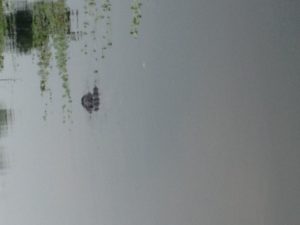Here we go again.
As soon as Hurricane Florence started looking like a major storm, the global warming fanatics started their usual mantra that their favorite belief would mean more, bigger, stronger, fatter, terrible hurricanes every year unless we immediately change our lifestyles and spend massive amounts of other peoples’ money.
Those true believers just make themselves look even more silly by such hyperbole but they do it every time. Remember Hurricane Katrina in 2005? Those exact same claims were made then. But there was not another major hurricane that hit the US for seven years, until Hurricane Sandy hit us in 2012. They again started their claims after Sandy.
Those fanatics claim folks like me are “skeptics,” and seem to want us treated like the Catholic church treated heretics in the middle ages. They say we must accept their version of science, but they ignore anything scientific that disagrees with their belief and condemn those that point this out.
A simple Google search shows hurricanes have actually decreased over the past 100 years, and that is with better observation and reporting availability. There are all kinds of data out there, interpreted in many different ways. But one chart, showing hurricanes striking the US by decade, shows fewer since 1950 than in any other time since 1850. Others show the same thing, with major hurricanes coming in groups, with four to six years between cycles.
Al Gore predicted Lower Manhattan would be under water by 2015. ABC “News” in 2008 repeated that claim and also said gas would cost more than $9 a gallon and milk $13 a gallon by 2015, all due to global warming.
In his doomsday movie “An Incontinent Truth,” Gore showed a glacier calving and used it to show how glaciers were rapidly retreating now due to global warming. I have been to that glacier in Glacier National Park and watched it calve. The naturalists on board told us that glacier had retreated 110 miles in the past 100 years, the fastest retreat taking place between 1860 and 1870. I guess it was all those civil war SUVs!
Last week the weather guessers said no chance of rain Sunday during the Flint River tournament at West Point. Around noon it poured so hard my bilge pumps came on. Another afternoon this past week
I took a picture of water flooding off my roof while looking at the “prediction” of zero chance of rain for at least the next six hours.
Yet those same folks that can’t look outside and tell if it is raining try to make us believe they can predict two tenths of a degree temperature increase 100 years from now.
I wish I still had the paper I had to write in 1975 for an Environmental Science class I took while working on my first Masters Degree. “Settled” science at that time proved we were entering a new ice age, due to man’s activities. The cure? You guessed it. Same as now, change our lifestyle drastically and spend lots of other people’s money.
I have seen a lot of weather changes over my life. But I have not lived long enough to see climate change, it takes place over thousands of years.
Hurricanes are destructive and dangerous. Weather can kill you. We should take its dangers seriously, but weather is a short-term event and it does change drastically day to day and year to year.
I will remain a climate change “skeptic.” I hope it does not reach the point where the true believers burn me at the stake for disagreeing with them.
